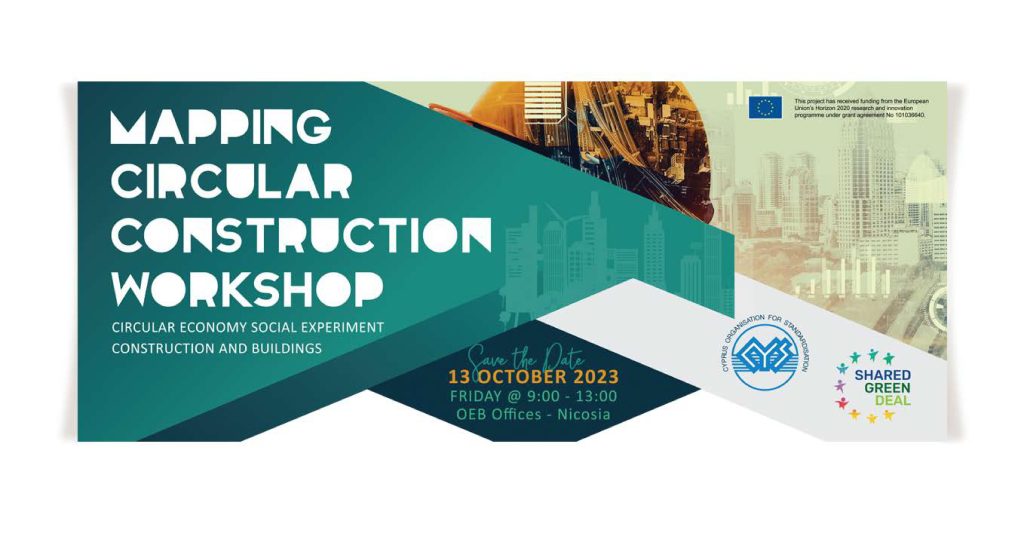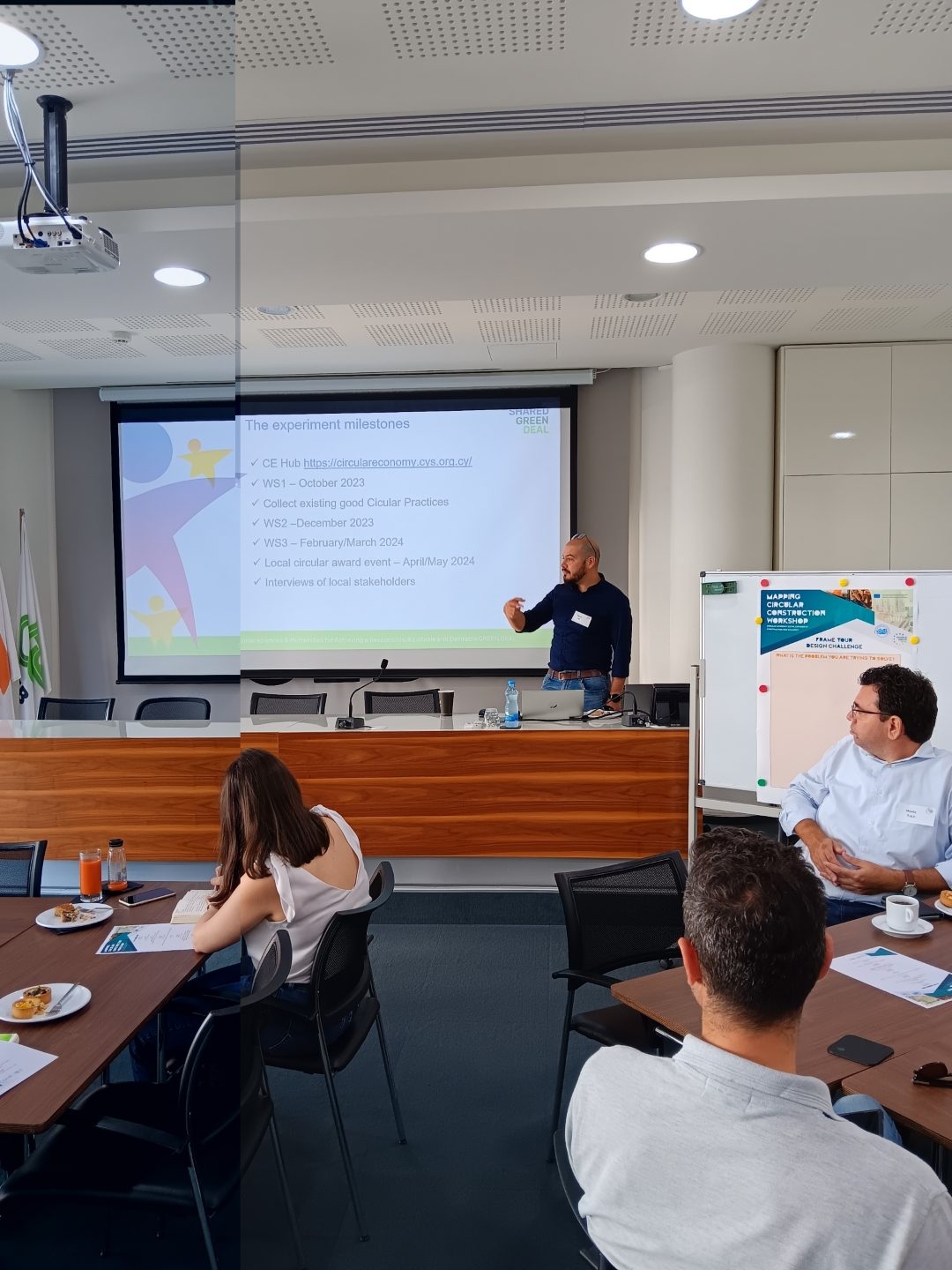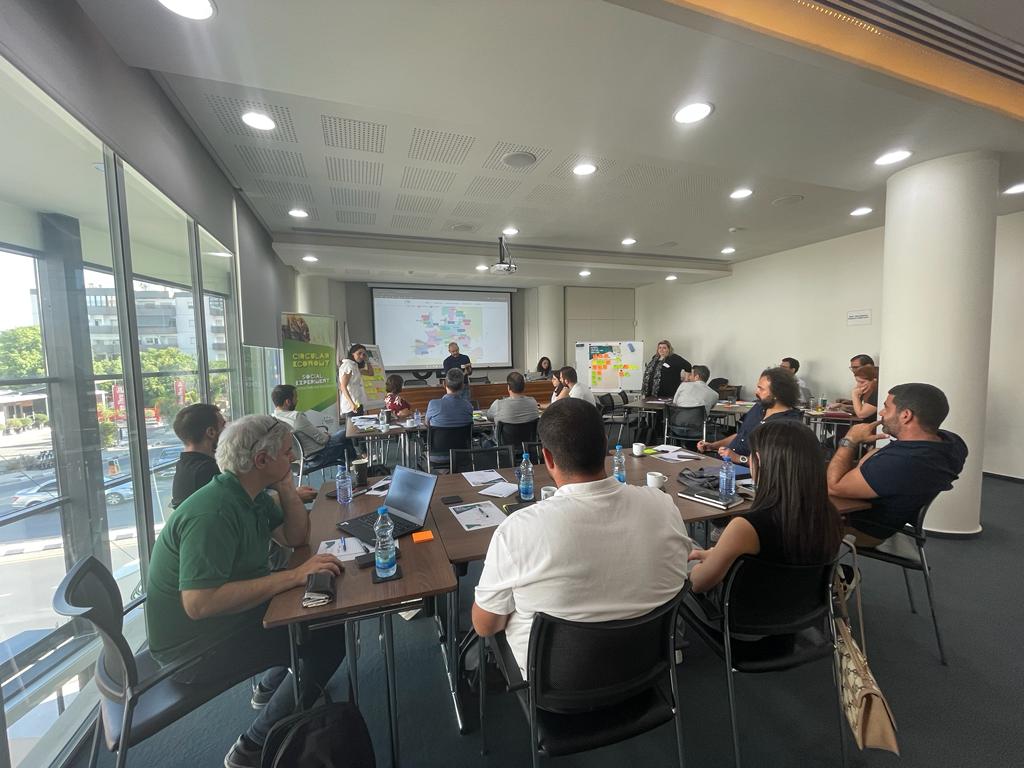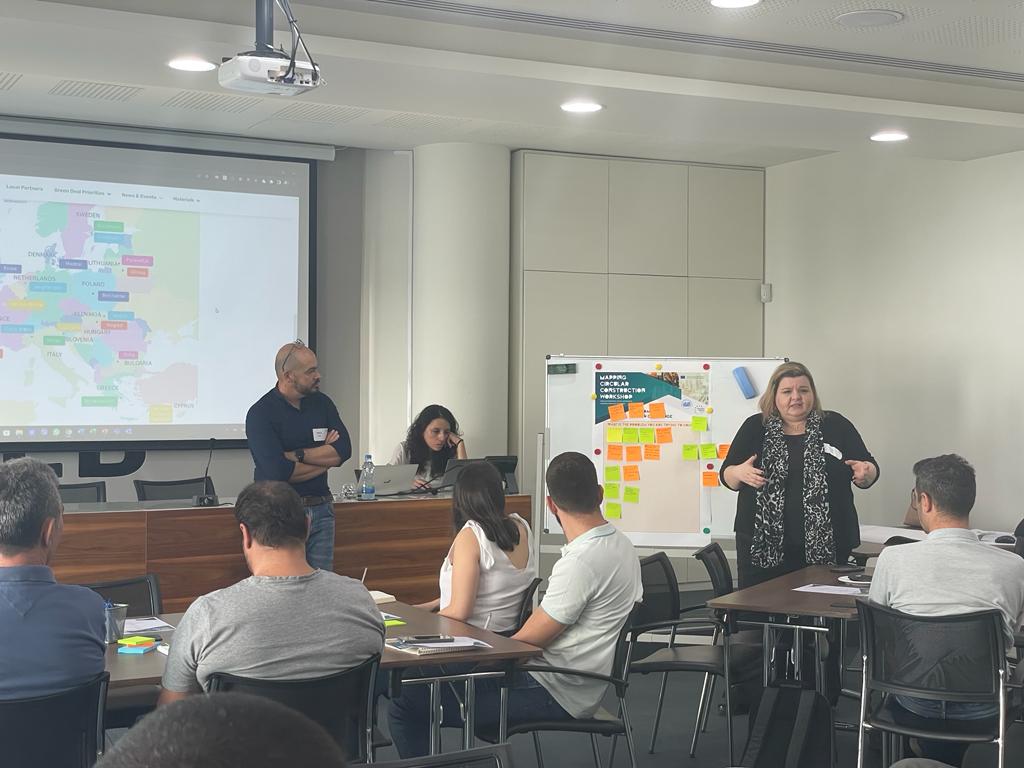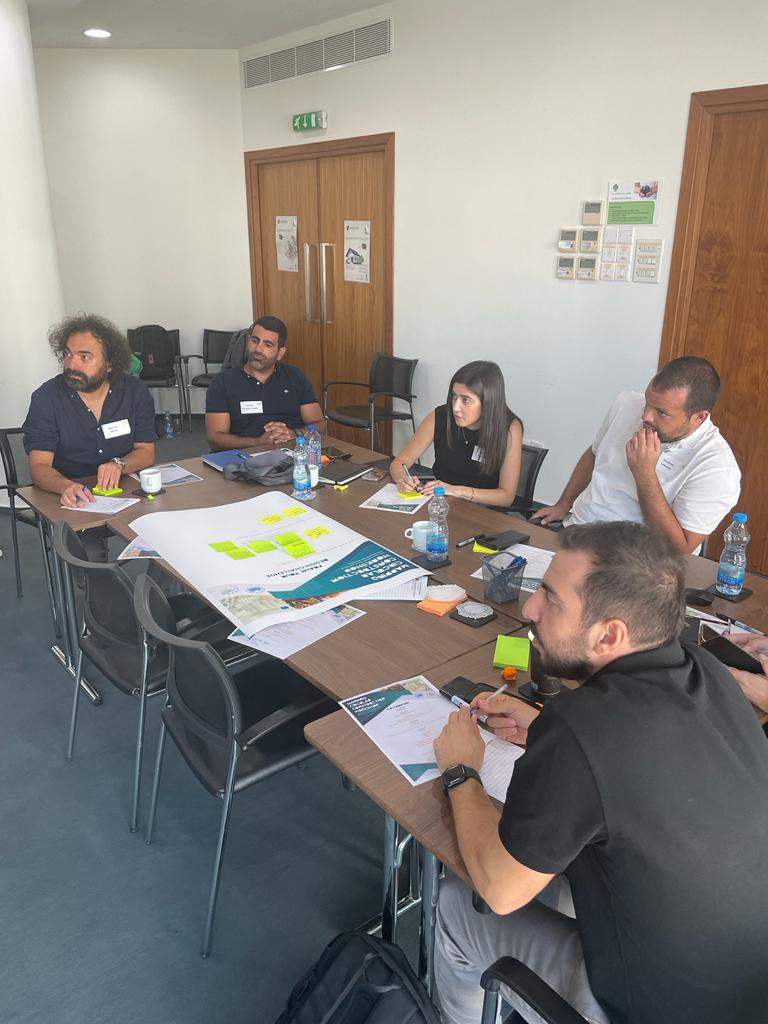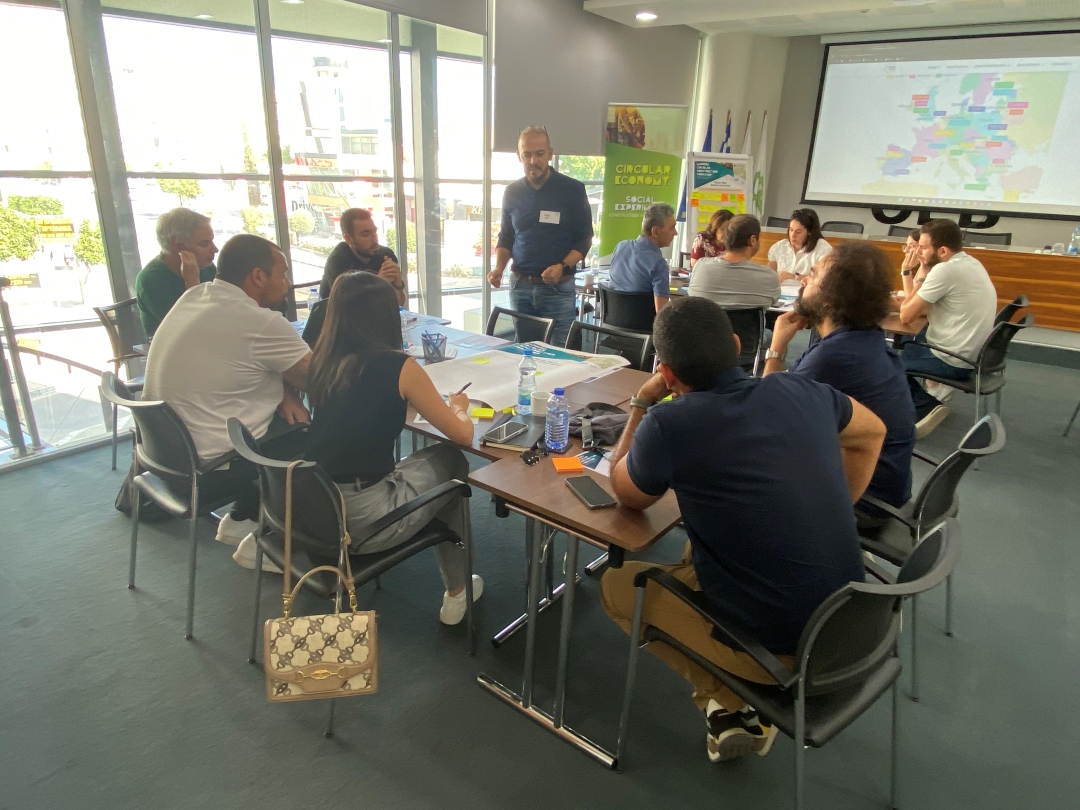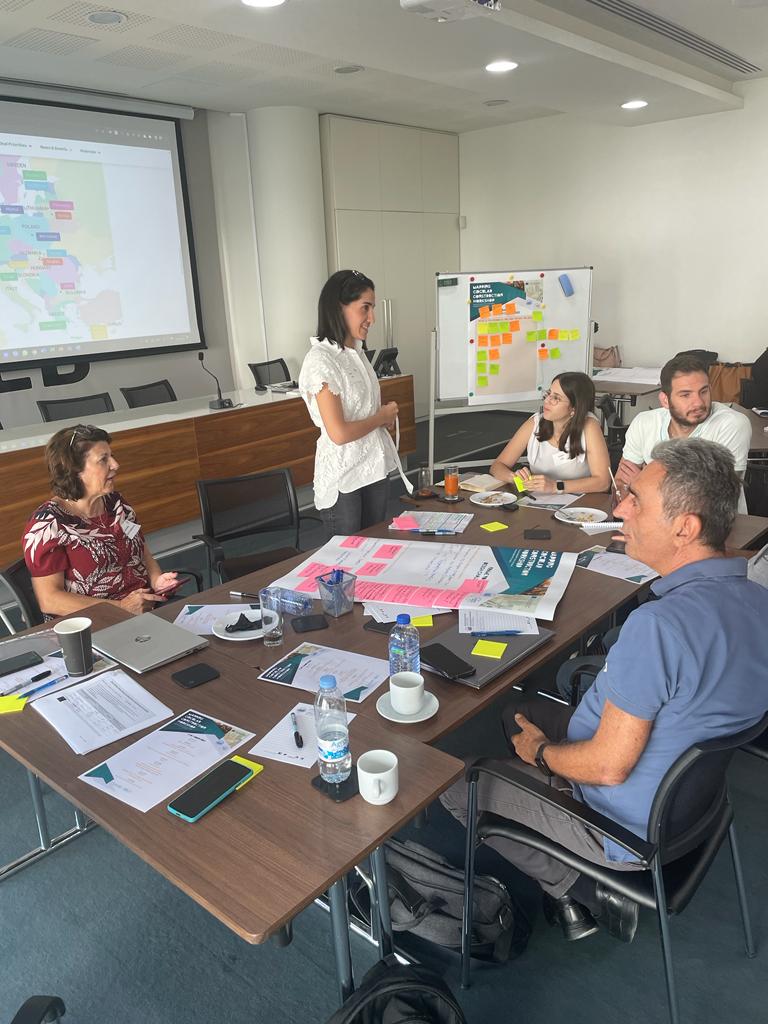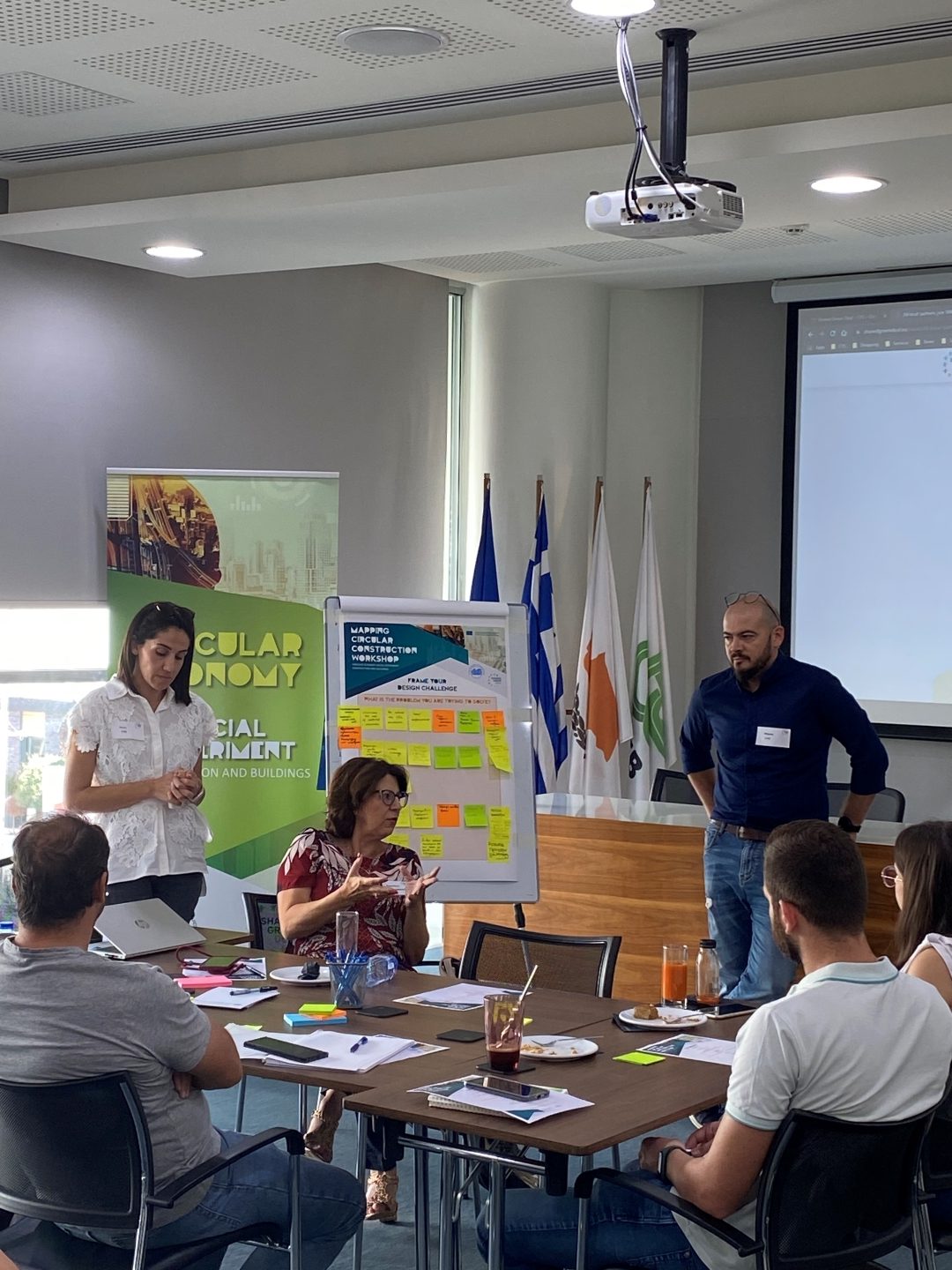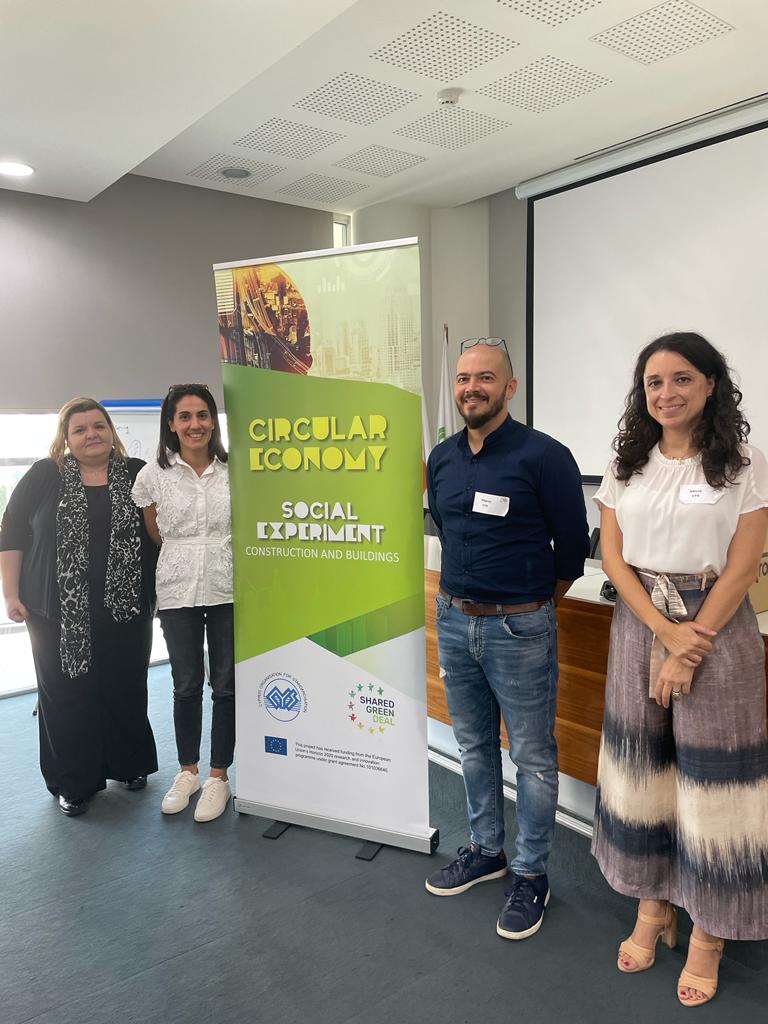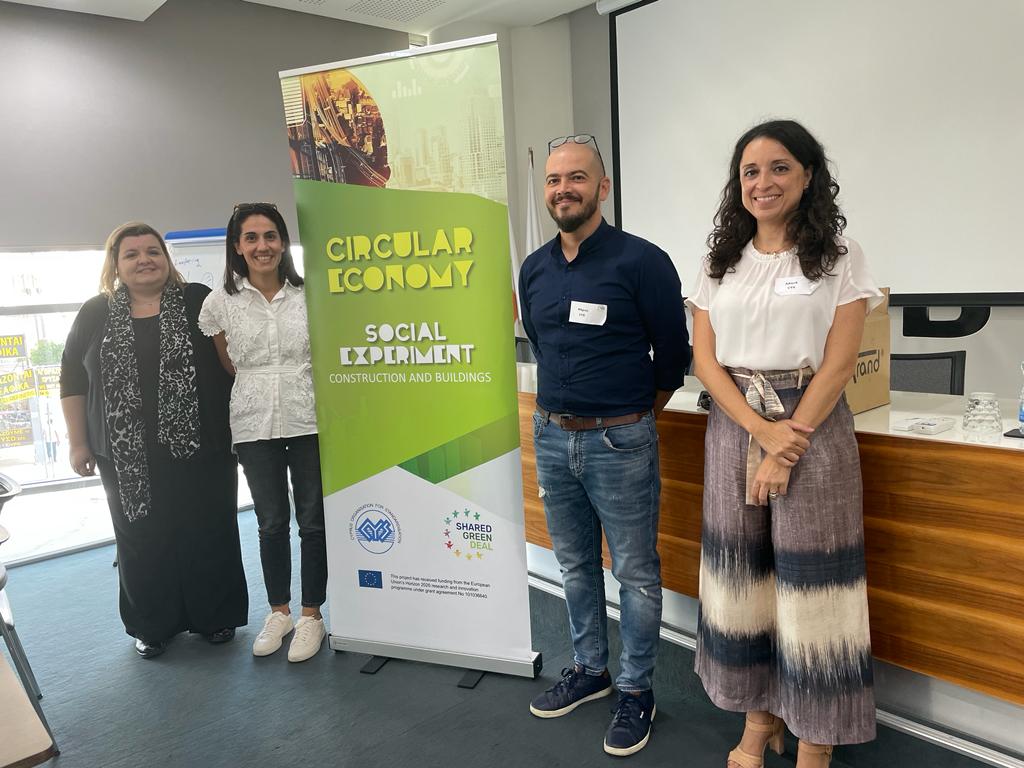In the framework of the Social Experiment performed for the SHARED GREEN DEAL project, focused on Circular Economy in Construction & Buildings, CYS is hosting the 1st workshop on 13/10/2023, 09.00-13.00, at ΟΕΒ offices (https://goo.gl/maps/nL3MAHrCmbrNv2WZ7).
The workshop, first in a series of 3 workshops, aims in mapping circular practices currently implemented in the local construction industry. At the same time the workshop will try to identify barriers, constraints, opportunities, enablers and map the overall challenge for a successful transition to a more circular construction industry.
Workshop Elements
The workshop included the following elements:
- Pre-workshop questionnaire:
- the level of understanding for CE,
- necessity for CE,
- willingness to adapt, implement, collaborate, and contribute to CE
- Constrains and barriers.
- Vision and expectations
- Ice breaking quiz to initiate the workshop using mentimeter tool.
- Group sessions using design thinking methodology to define:
- The problem
- The challenge
- Constrains and barriers.
- Possible solutions
- Open Discussion and presentation of pre-workshop questionnaire results
Workshop outputs
The overall challenge
The workshop was attended by all relevant stakeholders involved throughout the entire construction industry supply chain, from design to waste management, including government and academia. In total 22 participants took part.
We focused on analysing the context of the construction industry in Cyprus today and identifying the reasons why a transition to a circular model would be necessary. Furthermore, the stakeholders through an interactive process, seeked to identify the major constraints and barriers that hold back the industry from efficiently transforming and transitioning.
The outcomes of the workshop will serve as input to the following two workshops that will be focusing on developing possible practical solutions, business models, roadmap and/or policy recommendations to kick-start the industry’s transition.
- Pre-workshop Questionnaire results evaluation
The major outputs of the questionnaire were as follows:
- The majority of people responded to the questionnaire assess their level of understanding of CE adequate and above. Also, they consider to have a clear understanding of CE principles. Regenerate natural systems principles seems to be less clear than the other.
- Awareness is the most necessary level of training for local construction and building industry at the moment, to initiate its circular transition. The majority of responses indicate that Cyprus it’s not ready to proceed to the transition although all are willing to implement circular practices.
- Regarding the reasons stakeholders consider as most important for implementing CE, these include reducing environmental impact, reducing of expenses and legal compliance.
- The majority of responses show that CE is not considered important by construction industry stakeholders, and it’s difficult to envision a fast transition in the next years. Also, stakeholders do not foresee a successful transition in less than 5 years, with the majority not being able to foresee the time or the time is more than 10 years.
- The survey shows that stakeholders perception is that there are barriers and constraints blocking the implementation of circularity in construction, but feel optimistic that the barriers can be overcome. The crucial factor towards this is considered to be funding.
- Another important output of the survey is that a significant percentage considers collaboration among stakeholders not important although the majority would be willing to collaborate.
- Finally, the major stakeholders that are considered to play an important role in the transition is the Government and the construction companies.
Defining the challenge – interactive session to define the following:
- Defining the problem – Why do we need to transition to a circular model?
The construction industry is highly impactful on the resources of the island, generating large volumes of waste. Furthermore, there are limited available waste management areas and wastes are often disposed in non-regulated locations. Cyprus is an island system with high cost of shipping wastes abroad. There is also low availability of local resources that need to be secured, and a significant amount of raw material is imported. The construction industry has an important impact to the climate goals due to its multiplier effect in energy consumption.
- Defining constraints and barriers
Construction industry stakeholders culture is traditionally linearly oriented and there is significant resistance to change. There is lack of knowledge of the impacts of the industry by the stakeholders.
- Lack of market surveillance and effective implementation of legislation.
- Small market, in a constrained island system which does not allow the buildup of economies of scale.
- Lack of availability and high cost of circular products and technologies.
- Lack of trust by the construction industry stakeholders towards circular products due to lack of long-term experience, knowledge, standards and certifications.
- Lack of standards and specifications of secondary raw material.
- Lack of linkage of research results and the market on innovative solutions and products.
- Lack of stakeholder’s coordination and leading authority.
- Lack of incentives to implement circular practices in construction projects.
- Defining solutions
Create collaboration and knowledge exchange platforms.
- Training and education of the entire construction industry supply chain about sustainable and circular concepts.
- Provide incentives and subsidies by the government to support the use and promotion of circular practices and material.
- Develop standards or other specifications for secondary material.
- Create national waste/material repository to support industrial symbiosis.
- Promote the involvement of industry in funded research projects, national and European.
Defining the overall challenge
- “Create a financially sustainable circular model, for the operation of the entire construction industry supply chain. The model should be tailormade for the specific conditions of the construction industry, taking into consideration the constraints of the Cypriot market, being an isolated island system with cultural rigidities.”
Event photos

